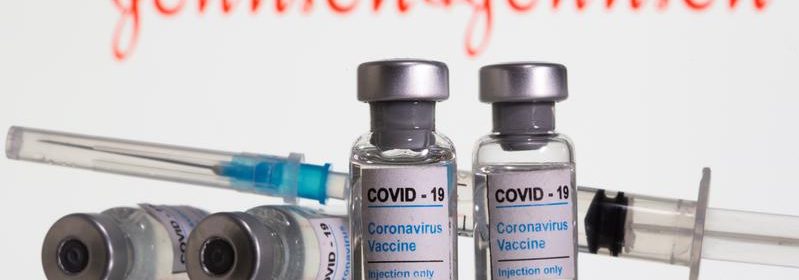South Africa says J&J vaccine will be given to health workers in study

JOHANNESBURG (Reuters) – South Africa’s health minister said on Wednesday that the country would vaccinate health workers with Johnson & Johnson’s COVID-19 vaccine in the form of an “implementation study” in partnership with the Medical Research Council.
The decision comes just days after the country put on hold the roll-out of the vaccine developed by AstraZeneca and Oxford University following data in a small clinical trial that showed it did not protect against mild to moderate illness from the 501Y.V2 variant of the virus now spreading quickly in South Africa.
“Given the outcome of the efficacy studies, the department of health will continue with its planned phase one vaccination targeting the health workers and using the Johnson & Johnson vaccine instead of the AstraZeneca vaccine,” Health Minister Zweli Mkhize said.
“The J&J vaccine has been proven to be effective … The rollout of the vaccination will proceed in the form of an implementation study with a partnership between the Medical Research Council and the national department of health.”
Advisers would be able to give a considered view on how to deal with the AstraZeneca vaccines in the next week or so, he added. Selling the doses was an option, Mkhize said.
Mkhize said the country had also secured COVID-19 vaccine doses from Pfizer Inc and that negotiations with Moderna were ongoing.
The J&J vaccine was 89% effective at preventing severe disease and 57% against moderate-to-severe disease in the South African leg of the global trial. Ninety-five percent of infections observed in the local study were due to the 501Y.V2 variant first identified late last year.
The 501Y.V2 variant has alarmed health experts who have raised concerns about its ability to potentially evade the immmune response generated by prior exposure to the coronavirus or vaccines.
Source: Read Full Article
